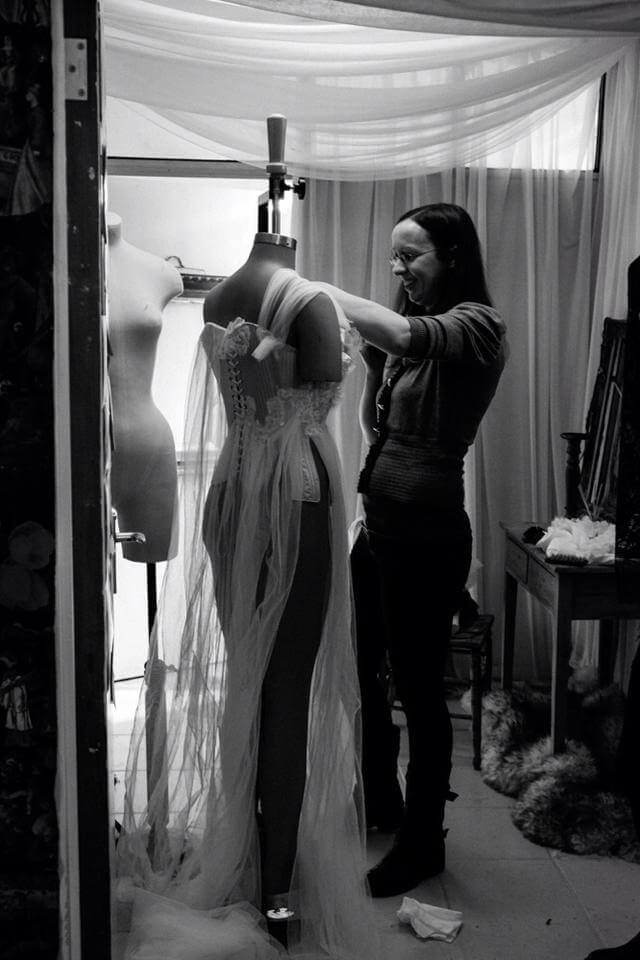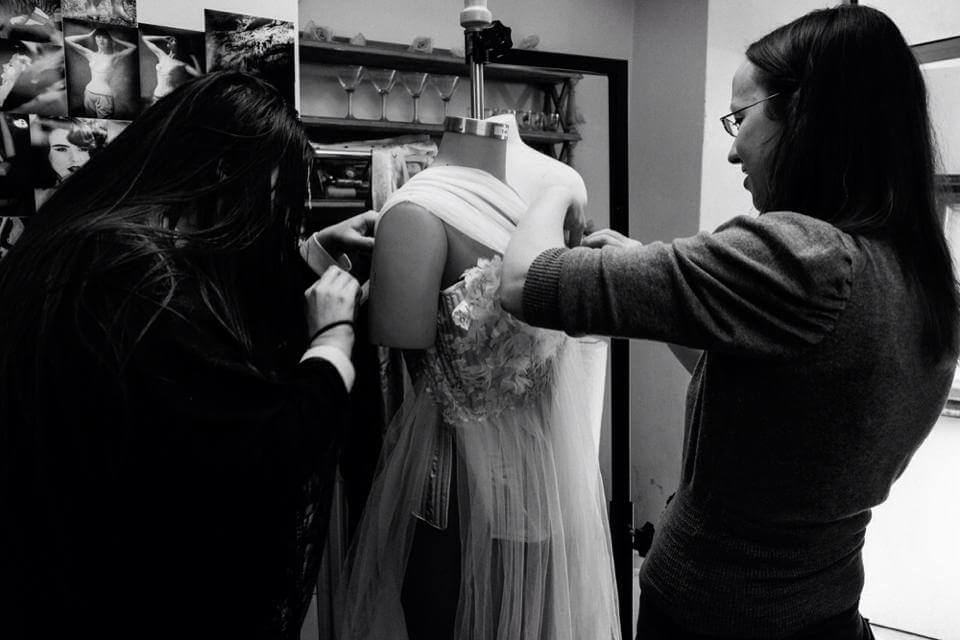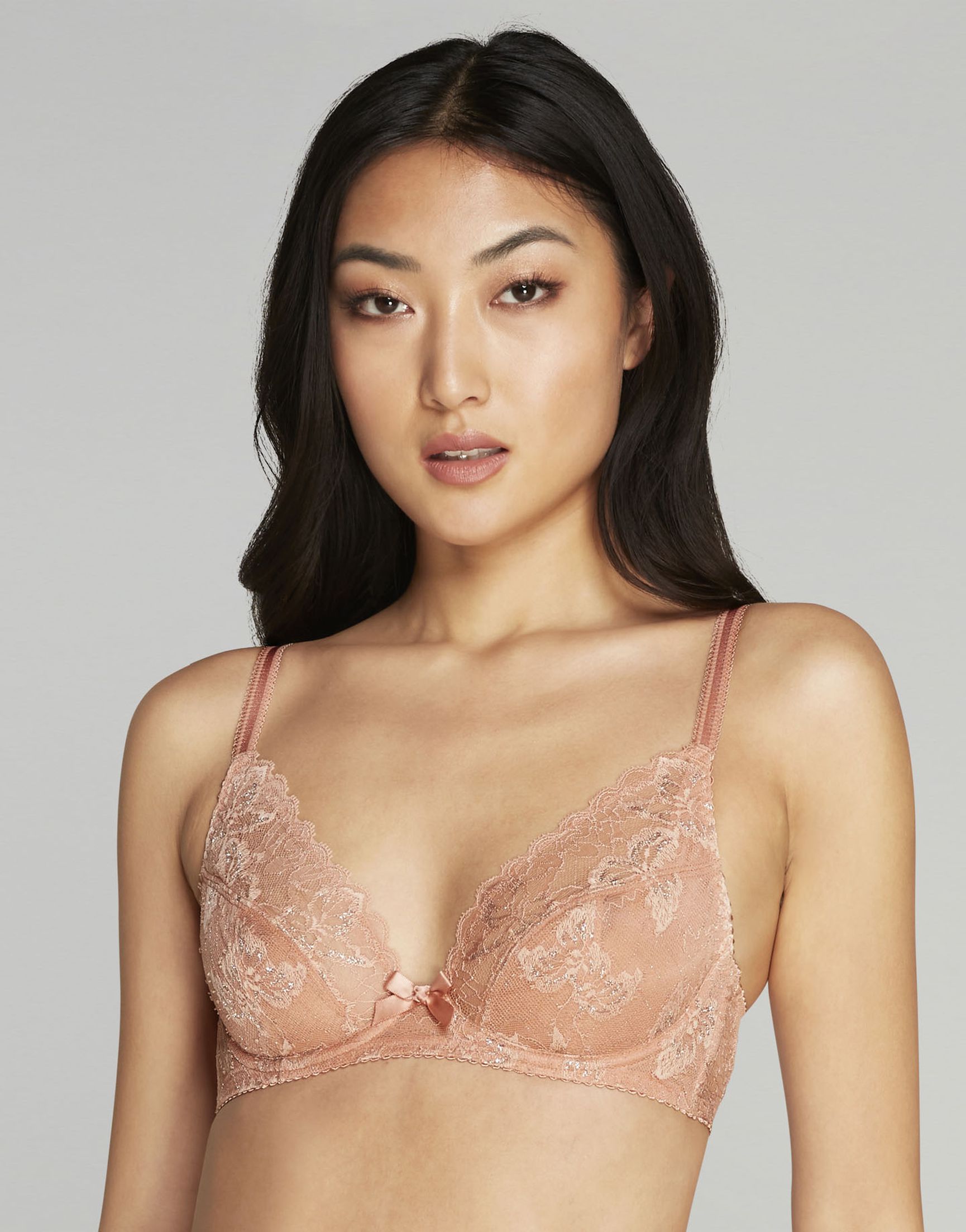How to Apply to and Succeed at a Lingerie Internship
For most students in the fashion industry, internships are an unavoidable hurdle that must be crossed. Lingerie students are no exception, and the process of finding and completing suitable internships can be fraught with worry. From competing to get a place with the best brands to the financial consequences of working (usually) for free in major cities, it can be a difficult time even for the most dedicated lingerie student.
I graduated from a lingerie design degree just a few months ago and have been through a substantial amount of internships in that time. I've also heard the experiences of my coursemates. Most of us would agree that, although we learned a lot, there are certainly a few things we would approach differently now. I hope this guide helps you to avoid some of our mistakes!
Choosing Where to Apply
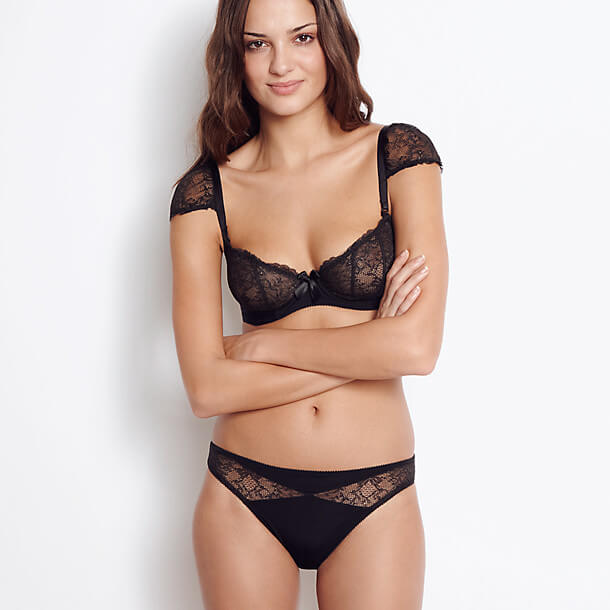
Nouvel Emoi by Huit - one of Wacoal Europe's brands. Photo by Journelle
There are a two key mistakes I see students repeatedly make when applying for internships: applying too late and applying to brands just because they like the designs. Depending on the brand (especially in the case of very large companies), it pays to apply early. The longer you leave it, the more likely it is that other students will have sent their applications and the brand will no longer have a place for you.
When it comes to choosing which brands to apply to, I cannot emphasise enough that you shouldn’t get in touch with someone just because you their designs. Although it’s great if you can get a placement where you love the aesthetic, it should come secondary to what you can learn there.
Think carefully about the direction that you want your career to go in and the skills you wish to learn to aid your journey in the lingerie world. If you want the security of employment with a company like Wacoal Europe or Victoria’s Secret, it makes more sense to get in touch with them than to spend time at a local independent lingerie boutique. Likewise, if you hope to one day start a lingerie brand of your own, then working with smaller, independent designers can add valuable strings to your bow.
Remember that larger companies often have separate departments for each area of the industry (usually leading to a more focused experience) while independent brands often do everything in house (giving you a more general perspective and much more hands on experience). Additionally, in my experience, smaller brands give their interns a lot more responsibility, which can be an exciting - if scary - learning curve!
How to Apply
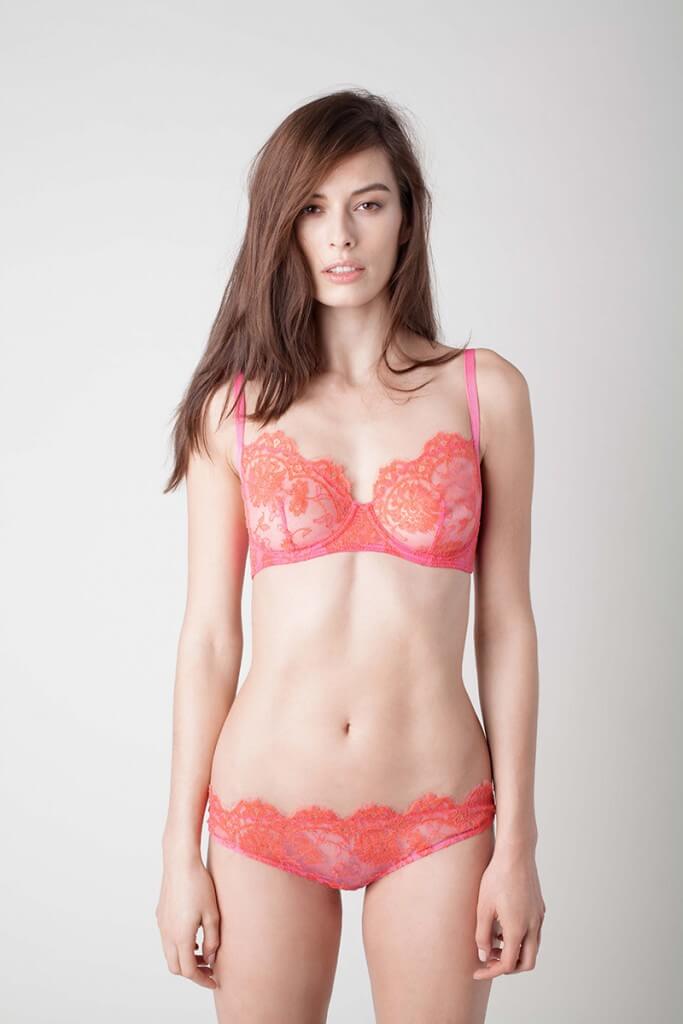
'Jaguar' by Damaris - a brand that regularly offers internship opportunities
The best method to apply for internships is undeniably by email. Just make sure your email goes to the right place! Some brands have dedicated webpages for internships (such as Sparklewren). Others address internships on their ‘Careers’ page (such as Damaris and Lascivious). However, not all brands share this information so readily. With smaller, independent brands, you can usually find a general contact email to direct you to the right person.
This isn’t so easy with large companies, though. In my experience, the best way to get a place with a big brand is to go talk to their representatives in person at a trade show. Trade shows generally are an excellent place to network and make new contacts. There are very few other opportunities where you’ll get a chance to meet brand representatives short of a personal connection.
Although it doesn’t hurt to message a brand over social media asking for a contact email, don’t try to apply for an internship through Facebook/Twitter/Instagram. I cannot emphasise enough that it comes across as extremely unprofessional! Ensure all of your communication is polite and courteous. It may help to view applying for an internship in a similar manner to applying for a job.
It often helps if you attach your CV (or resumé) to your first contact email, to give the brand a chance to see what you may bring to them. Ensure your CV is professionally written. If it’s five pages long, features 10 different fonts, and largely talks about your experience working part time in the catering industry, it’s likely to get skipped over.
Tip: Although not compulsory, attaching a link to your online portfolio is a great way to stand out amongst other candidates and get you noticed for your creativity!
Cost

During my internship with Kiss Me Deadly I developed a range of accessories including these nipple pasties
It’s an utterly unfair reality that individuals with financial stability and privilege have the best chance at a successful design career, because, to be blunt, studying lingerie design is expensive. Most internships are unpaid. Although some (but not all) compensate travel and food costs, there are some serious financial implications that you’ll have to consider - whether it’s travel and accommodation in a major city (where most brands are based) or time away from a paying job.
Tip: Track down friends and family in major cities and arrange to stay with them during internships to help cut down on costs.
There’s a lot of talk about whether internships are exploitative. Whilst I certainly agree that some may be (I have little respect for a company that writes unpaid labour into a business plan or relies on unpaid interns for production), it’s also true that they can be extremely valuable experiences. In fact, they can more than pay for themselves if you approach them the right way.
The time I spent with Kiss Me Deadly certainly gave my brand an incredible boost in terms of business knowledge I learned, whilst my graduate collection would have been comparably lacklustre if it hadn’t been for the embellishment techniques I gained during my time with couture corsetiere Sparklewren!
How to Behave

Samio In Sparklewren. Featuring lace and stud embellishment techniques.
It should go without saying that you treat any internship like a job. Dress appropriately, be punctual and be polite. Just because you’re not being paid a wage doesn’t make it acceptable to blow off your duties. It reflects badly on you and the institution where you study and can greatly inconvenience a company that has arranged their schedule around you.
However, just because you’re unpaid does not give a brand justification to treat you badly. If you feel you’re not being treated with respect, speak up. In the worst case scenario, remember you don't have to stay there. Don’t feel guilty about leaving if you’re being abused!
If you’ve found yourself being assigned tasks you did not sign up for, ensure that you communicate with the brand. They need to know you’re unhappy.
For example, if you’ve found yourself assigned the sole task of dog walking for two weeks (or something else equally irrelevant to the lingerie or fashion industries), you shouldn’t be expected to grin and bear it. Speak to the brand and try to find a compromise on the tasks you're engaged with. If they’re not willing to budge, there’s no obligation for you to spend your time there.
UK employment guidelines state that unpaid interns cannot do work an employer will profit from directly. Bear this in mind when you apply for a position. If you're just used to sew products for the brand, this should ring alarm bells! Likewise, if you’ve been promised payment for your time only to have the company change their mind, stand your ground. The fashion industry doesn’t operate under its own laws!
Tip: If there are particular things that you want to learn, make sure you've discussed this with the brand before you start. If you only want to assist with design and the brand don't have anything planned it may not be the best opportunity for you!
Make the Most of Your Time There
Don’t view your internship as a set amount of hours you have to drag yourself through. Use it as a time to learn. There is so much real world experience you can gain as an intern. Keep an open mind, pay attention to what you do and the work going on around you and, most importantly – ask questions.
Use your time "behind the curtain" to learn about the ins and outs of running a business as well as the realities of production and commercial design. There are so many things that a university course won't teach you and the sooner you can learn, the better.
Tip: This is the best time to learn about the business side of the industry! If you aspire to one day run your own brand, this is the time to pay attention to the day-to-day tasks that drive a business.
How Long to Intern For

Lascivious Bodysuit
For many individuals, the length of an internship is dictated by cost. If you don’t live in the city where the internship takes place, you may have a limited budget for accommodation. As always, you’ll have to carefully consider the costs and benefits of each individual opportunity.
With smaller brands, you can expect to spend anything between a few days to a month working with them. Be wary of any internship that doesn’t offer any financial compensation but expects you to spend months at a time with them.
Some universities build a year interning within the industry into their curriculum, a great opportunity to take a placement at a company for a longer period of time. In these scenarios you should expect some kind of financial compensation, even if it is minimum wage.
Either way, the length of an internship is usually open to some kind of negotiation. If you’re trying to find a placement during your university holidays, brands are often happy to work around your time constraints.
When to Intern

Wacoal, a lingerie company with a large, global presence - that you can meet at a tradeshow
The best time to intern is usually during university holidays. Ideally you’d be lucky enough to either have a student loan to subsist from or supportive and financially stable parents that can help fund your internship.
It’s best to make new contacts during your studies. The people you meet during your internships can be very valuable, either as individuals to help you and sponsor your graduate collections or to potentially offer you a job once you’ve graduated!
Tip: The Summer holidays of universities are a great time to fit in as many internships as possible - if you spend a week or two with different brands it will give you an opportunity to see lots of facets of the industry.
Keep in Touch!
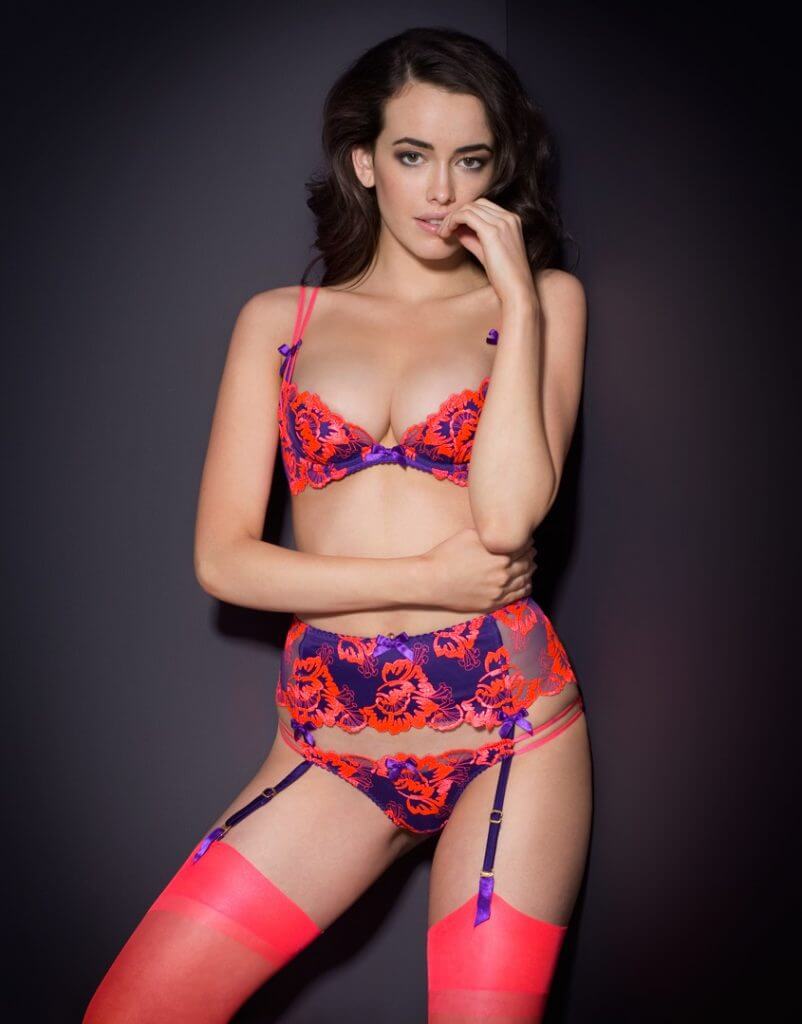
Agent Provocateur, an example of a large lingerie brand offering internships
If you enjoyed your time interning, then make sure you stay in touch! Networking pays off in the long run and it never hurts to make new friends in the world of knickers. Plus, you never know - if a certain brand keeps your name in mind, you may have a job waiting for you once you graduate.
Would you ever consider studying lingerie? If you’re a fellow fashion graduate, do you have any other tips to offer?





